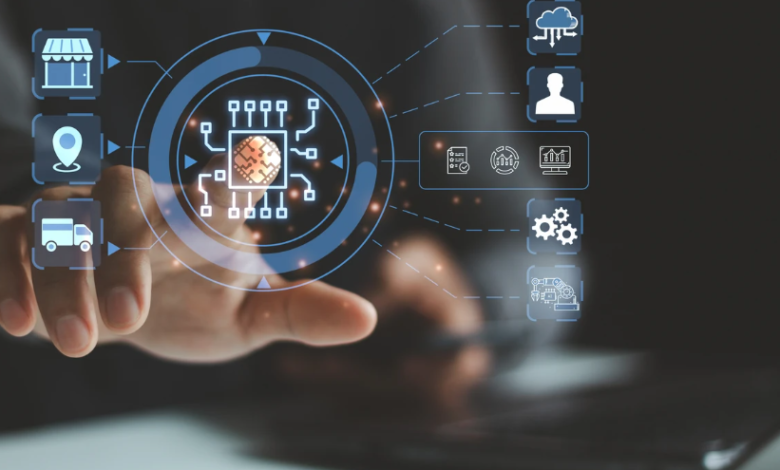The AI Revolution: How Smart Technology Is Reshaping Procurement’s Tomorrow

The procurement environment is experiencing a paradigm shift that could forever change the way companies procure goods and services. Artificial intelligence is behind this shift as it has endowed traditional procurement processes with capabilities never heard of before. Complicated decisions that used to require human intuition can be enhanced by data-driven performance, and tasks that used to require many hours of manual interpretation can now be done within minutes. This technological revolution is more than automation. AI procurement software is completely changing the balance of power between suppliers and buyers, unlocking new possibilities of value creation and strategic alliances.
1. Intelligent Demand Forecasting and Predictive Analytics
Considering the huge quantities of past information, market trends, and external factors, modern AI-based systems revolutionize the demand predictions and generate very precise forecasts regarding future purchase demands. These sophisticated algorithms consider a wide range of demand: they consider economic statistics, supplier performance measures, seasonal patterns, and even sentiments on social media to give comprehensive estimates of demand. Forecasting driven by AI is always adaptive to the changes in situations and detects new patterns in the data, compared to the traditional methods that only take into consideration historical averages.
Organizations may cut carrying costs, eliminate stockouts, and manage inventory levels thanks to this increased predictability. Today, AI procurement software teams are able to predict changes in the market and make proactive, as opposed to reactive, strategy adjustments. As a consequence, resources are allocated more effectively, and the supply chain’s overall financial performance is greatly enhanced.
See also: The Future of Wearable Tech: Beyond Smartwatches
2. Automated Vendor Selection and Performance Optimization
The laborious manual process of choosing a vendor is replaced with an effective, data-driven procedure thanks to artificial intelligence. The algorithms will examine potential suppliers based on several factors, including the competitiveness of prices, the quality of the supplier, delivery record, financial viability, and compliance record. The system follows the performance of the vendors on a real-time basis and searches for trends and patterns that could predict challenges or opportunities in the future. Machine learning capabilities in the procure to pay systems enable it to pick small clues on performance, including relationship between weather patterns and delivery delays, that would be missed by human analysts.
Stronger supplier relationships, lower risks, and better overall procurement results are the results of this astute vendor management. Businesses gain from unbiased decision-making that removes human prejudice and guarantees the best supplier choice for any particular purchase need.
3. Dynamic Contract Management and Negotiation Support
Contract management systems with AI capabilities examine hundreds of terms, conditions, and performance indicators to find areas for improvement and any hazards. Based on past performance data and industry best practices, these intelligent algorithms may analyze contract wording, highlight odd sections, and recommend changes. To provide data-based recommendations to procurement professionals on future contract negotiations, machine learning algorithms seek patterns in the successful negotiations.
The program automatically tracks its contract milestones, renewal dates, and compliance needs to ensure that there is no case of businesses missing opportunities or deadlines. To deliver the most favorable conditions, the negotiations of contracts are even facilitated by the intelligent analyses of supplier capacities, market conditions, and competitive positioning using AI procurement software approaches. Procurement teams may obtain better bargains while lowering legal risks and administrative burdens thanks to this thorough contract information.
4. Real-Time Spend Analysis and Cost Optimization
Artificial intelligence takes expenditure analysis, which previously consisted only of a periodic reporting aspect, into a continuous and real-time process that can provide up-to-date information on purchase patterns and ways in which money can be saved. Artificial intelligence (AI) systems can analyze expenditure data from different perspectives, finding out patterns, abnormalities, and potential cost savings missed by traditional methods of analysis.
The technology can possibly recognize the anomalies in prices, multiple purchases, and maverick spending, informing the procurement teams to set corrective measures. Its machine learning will enable the procure to pay systems to detect complex spending patterns and suggest opportunities to consolidate interactions that would result in improved supplier terms or bulk savings.
5. Enhanced Risk Management and Compliance Monitoring
Risk management systems, powered by artificial intelligence (AI), closely monitor supplier networks, market trends, and legislative changes to identify any risks that may interfere with the operations of the business. These smart algorithms are used to weigh the supply chain risk and supplier stability by analytic means of news feeds, financial reports, weather, and geopolitical occurrences. The potential of machine learning algorithms to predict potential disruptions regarding the historical trends and the current situation makes it possible to implement proactive risk mitigation techniques.
The program automatically tracks adherence to corporate regulations, contract conditions, and regulatory obligations, identifying infractions and recommending remedial measures. In order to assist AI procurement software teams in creating backup plans, sophisticated AI systems may even replicate different risk situations. Organizations can maintain stable supply chains while guaranteeing adherence to changing legislation and internal governance needs thanks to this thorough risk intelligence.
6. Streamlined Purchase Order Processing and Automation
Artificial intelligence changes the processing of purchase orders by automating routine tasks and eliminating the human factor of mistakes that plagues the traditional systems. With AI-based solutions, it would take minutes to complete all processing procedures, meaning that the process of generating purchase orders based on the demand, inventory levels, and required parameters could be automated. The program matches purchase requests with policy criteria and budget availability by intelligently routing orders via the proper approval channels. Constant improvement in the accuracy of processing is achieved with the help of machine learning algorithms, which also use user input and historical trends.
Due to the automatic comparison of invoices to purchase orders and receipts, the system is capable of identifying discrepancies and pointing to potential issues that should be inspected by a human employee. Procurement teams have less administrative strain thanks to this clever AI procurement software, which also increases accuracy and compliance. Through more effective order management, businesses gain from quicker processing times, fewer mistakes, and better vendor relationships.
7. Intelligent Supplier Discovery and Market Intelligence
Supplier discovery tools with artificial intelligence (AI) perform the process of finding new suppliers, monitoring competitor behavior, and tracking market trends that can influence purchasing strategies on a continuous basis within global markets. These smart algorithms scan supplier websites, trade journals, industry databases, and social media to generate detailed supplier profiles and competence analyses.
Algorithms using machine learning can find vendors who meet organizational needs by having certain skills, licenses, or geographic advantages. The program offers up-to-date market knowledge about capacity limitations, pricing trends, and new technologies that may affect purchasing choices. Even more sophisticated AI algorithms are able to forecast changes in the supplier market and suggest the best times for supplier switches or contract negotiations.
Conclusion
The AI procurement software is a major development move that signals an improved shift toward more intelligent, effective, and strategic ways of managing procurement processes. Companies adopting these technologies enhance their decision-making, reduce costs, and cement their relationship with those who supply them, gaining a significant competitive advantage. By integrating AI capabilities into their procure to pay systems, organizations can streamline the entire procurement lifecycle from initial sourcing through final payment processing. The future procurement teams will be those that can leverage their AI abilities to transform their processes from reactive purchasing activities into proactive strategic advisors within the company.




